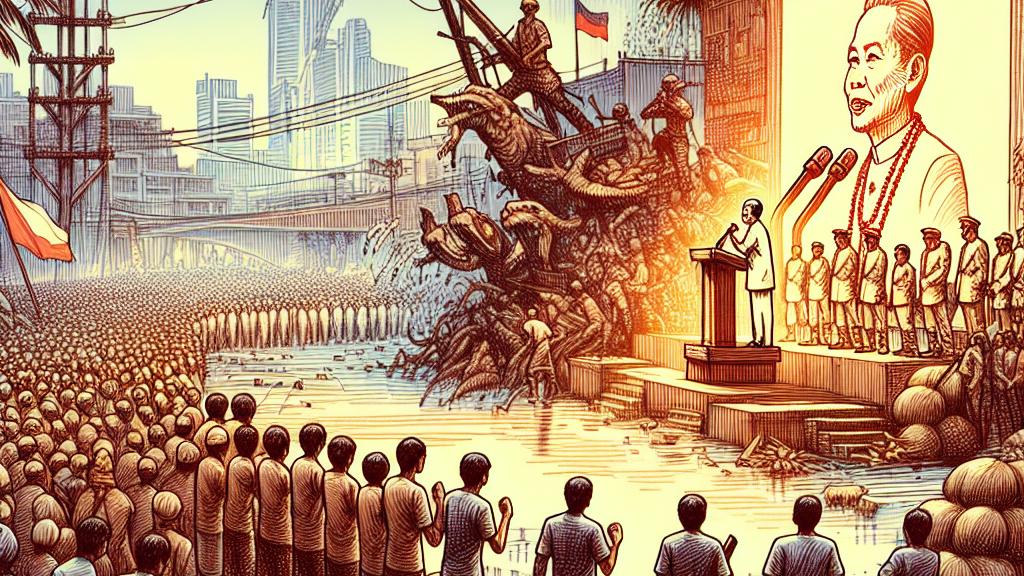Sri Lanka's First Leftist President Sworn In Amid Economic Crisis
Overview
- Anura Kumara Dissanayaka's inauguration marks a historic shift in Sri Lankan politics, signaling a desire for systemic change.
- His election is a response to severe public discontent stemming from a crippling economic crisis and widespread protests.
- Dissanayaka is determined to restore public trust and reshape economic policies for the benefit of all Sri Lankans.

The Catalyst Behind Political Change
Recently, Sri Lanka found itself in a tumultuous state, characterized by rampant inflation, food shortages, and public protests. This turmoil reached a pivotal moment when Anura Kumara Dissanayaka was sworn in as the country's first leftist president on September 21, 2024. Citizens had faced unprecedented hardships due to an economic meltdown that began in 2022, forcing many families to stand in long lines for basic necessities like rice and cooking gas. One striking example of public outrage was the mass protests against former President Gotabaya Rajapaksa, who fled the nation amid escalating tensions. Dissanayaka's victory is not merely a change in leadership; it represents a collective yearning for reform and a demand for political accountability that echoes throughout the island nation.
Dissanayaka's Vision and the Challenges Ahead
In his inaugural address, Dissanayaka passionately emphasized the importance of rebuilding trust between the government and the people. He recognized that his ascent to power comes with immense responsibility, stating he would prioritize inclusive governance to heal the deep-rooted divisions within society. However, the challenges he faces are daunting. The Janatha Vimukthi Peramuna (JVP), his political party, holds only a minority of seats in parliament, which complicates his ability to implement significant reforms. To navigate this political landscape, he must forge alliances with other parties and actively engage with civil society. Additionally, Dissanayaka's commitment to renegotiating the IMF rescue package is a testament to his resolve to alleviate economic pressures; through proposed tax cuts, he aims to provide immediate relief to families impacted by the previous administration's austerity measures.
A Transformative Era for the JVP and Sri Lanka’s Future
Dissanayaka's leadership presents a unique opportunity for the Janatha Vimukthi Peramuna, which has historically been associated with violent uprisings. Now, under his guidance, the party is pivoting toward a platform of dialogue, reconciliation, and progressive policies. This evolution is crucial, as many Sri Lankans crave not just political change, but also a government that is attuned to their everyday struggles. Dissanayaka’s approach must encompass diverse economic strategies, such as job creation and social welfare programs, to uplift those who have felt left behind. As he embarks on this transformative journey, the new president stands on the precipice of history with the potential to unite a nation yearning for peace and prosperity. The eyes of the world will be on Sri Lanka as Dissanayaka endeavors to turn hope into action, forging a path towards restoration and sustainable development.

Loading...